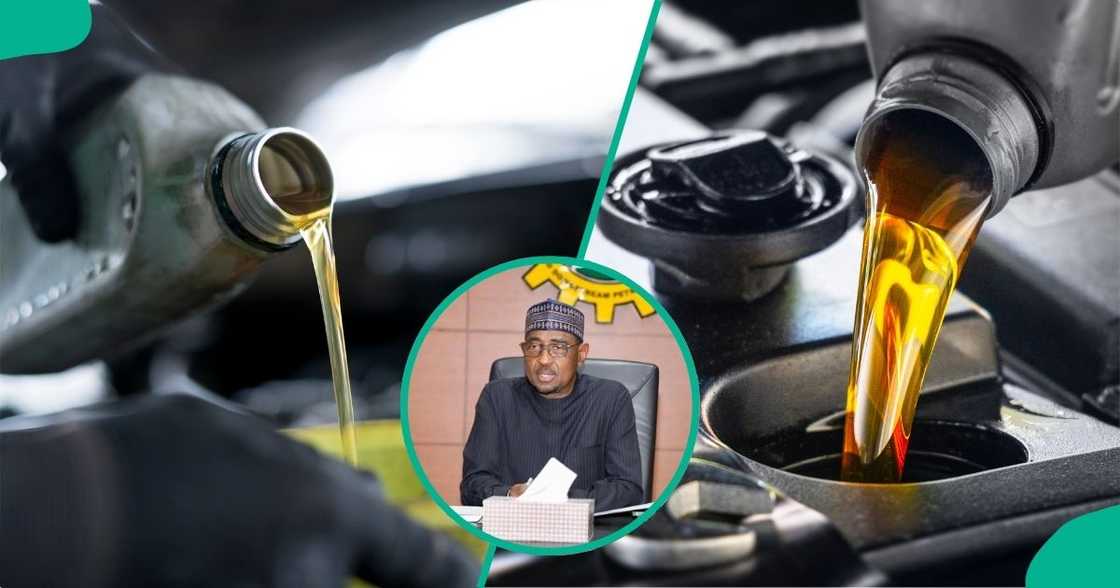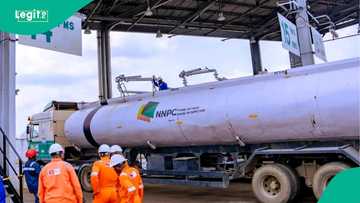FG to Begin Issuing Lubricant Import Licences as Local Manufacturers Warn of 200,000 Job Losses
- The Nigerian Midstream and Downstream Petroleum Regulatory Authority (NMDPRA) has announced plans to issue an import licence for lubricant
- The regulator said that the move is to eliminate fake and substandard products from the market
- However, lubricant manufacturers in Nigeria have kicked against the policy, stating that it could cause the loss of jobs for 200,000 Nigerians
Legit.ng’s Pascal Oparada has reported on tech, energy, stocks, investment and the economy for over a decade.
In a move to sanitise Nigeria’s lubricant market, the Nigerian Midstream and Downstream Petroleum Regulatory Authority (NMDPRA) has announced plans to begin issuing licences for lubricant imports.
The new policy aims to flush out substandard and unauthorised products in the market.

Source: Getty Images
FG begins plans to issue lubricant import licences
According to NMDPRA’s chief executive, Ahmed Farouk, the new process aligns with the Petroleum Industry Act (PIA).
The initiative will also enhance regulatory oversight, improve product quality, and protect consumers and machinery, Ahmed stated.
NMDPRA opens a portal for registration
The NMDPRA’s boss, who was represented at an event in Abuja by Francis Ogere, the executive director of HPPITI, said the agency rolled out the Lubricant Importation Module on the Lube Oil Blending Plant Portal.
He disclosed that the tool is designed to ease application, approval, and monitoring for legitimate importers.
He disclosed that the portal is fully integrated with Nigeria Customs’ B’Odogwu platform to ensure real-time tracking and compliance enforcement.
Ahmed said:
“This system creates a transparent and traceable licensing process. We want only authorised and compliant players in the lubricant supply chain.”
The regulator said the main aim is to support local production by limiting access to the market for fake or substandard imports.
He allayed fears, saying that the move was not to kill trade but to ensure Nigeria moves closer to self-sufficiency with high-quality products.
Nigerian manufacturers kick against the policy
Meanwhile, Emeka Obidike, the executive director of the Lubricant Producers Association of Nigeria (LUPAN), said that the licensing policy could boomerang.
He said the policy could discourage investment, threaten 200,000 jobs, and disrupt gains already achieved by blending plants.
According to Obidike, the policy contradicts the government’s backwards integration plans.
He asked the government to support local manufacturers, stating that the move could open the market up to unfair competition.
Experts explain the benefits for Nigerians
Petroleumpriceng said that Ngozi Nwankwo, director of liquids at HPPITI, said the regulation would be unbiased and focus on eliminating inferior products.
Experts have said that the licensing programme could improve quality, reduce engine failures, and protect consumers from harmful products.

Source: Twitter
Also, it shows a growing commitment by the regulator to enforce compliance and raise standards across the industry.
Dangote Refinery imports more US crude oil
Legit.ng reported that Dangote Refinery, Africa's largest oil processing plant located near Lagos, has increased its imports of US crude oil this year.
The refinery’s reliance on imported crude for production underscores Nigeria’s ongoing oil production struggle despite various promises and the naira for crude policy.
According to the May 2025 Monthly Oil Report by the Organisation of the Petroleum Exporting Countries (OPEC), Nigeria’s crude oil production averaged 1.468 million barrels per day (mbpd) in the first quarter of 2025, significantly below the 2 mbpd target set in the federal budget.
Source: Legit.ng





